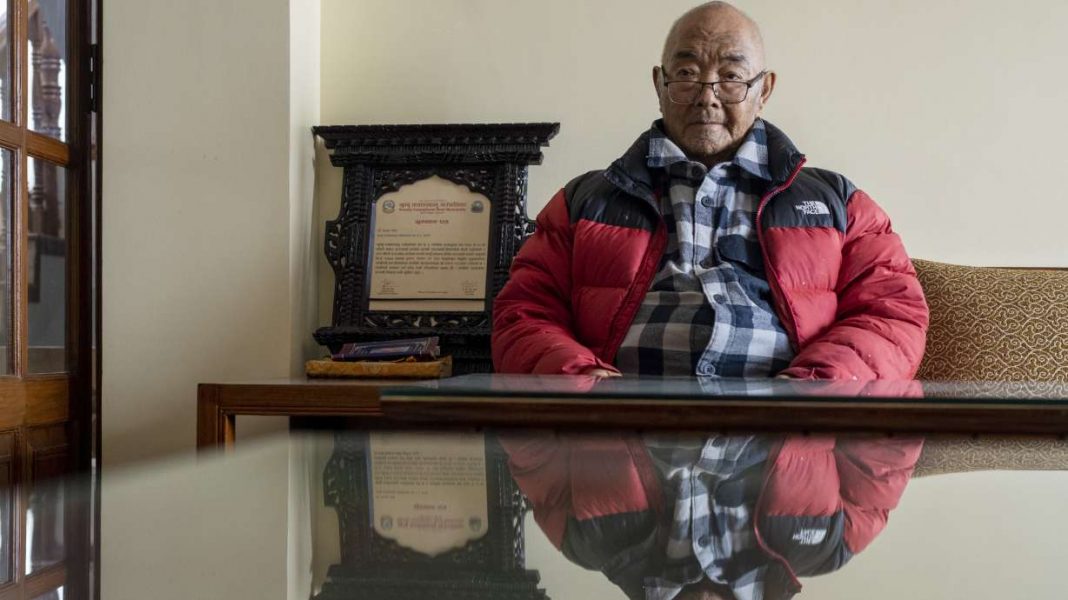From the heart of KATHMANDU, Nepal, the last living member of the pioneering team that first scaled Mount Everest, the world’s highest peak, voiced his concerns on Saturday. He lamented the overcrowding and pollution that now plague the mountain, emphasizing that Everest is a deity that deserves reverence.
At the ripe age of 91, Kanchha Sherpa, who was part of the 35-member team that assisted New Zealander Edmund Hillary and Sherpa guide Tenzing Norgay in reaching the 29,032-foot summit on May 29, 1953, shared his thoughts in an interview in Kathmandu.
“The mountain would benefit from a reduction in the number of climbers,” Kanchha stated, “Currently, the summit is always teeming with people.”
Ever since that first successful ascent, thousands have followed in their footsteps, with the number of climbers increasing each year. In the spring climbing season of 2023 alone, 667 climbers reached the peak, necessitating the presence of thousands of support staff at the base camp from March to May.
Concerns have been raised about the impact of people living on the mountain for extended periods, generating trash and waste. However, authorities have yet to implement plans to limit the number of permits issued to climbers.
While there are regulations requiring climbers to descend with their own trash, equipment, and all other items they bring to the mountain, enforcement has been less than effective.
“The mountain is now heavily polluted. People discard cans and wrappers after eating. Who will clean up after them?” Kanchha questioned. “Some climbers simply dispose of their trash in crevasses, which may be concealed at the time, but will eventually be carried down to base camp as the snow melts.”
For the Sherpas, Everest, or Qomolangma, is the goddess mother of the world and holds a sacred place in their community. They typically perform religious rituals before attempting to climb the peak.
“The mountain should not be desecrated. It is our most revered deity and should not be defiled,” he stated. “Qomolangma is the Sherpas’ greatest deity, yet people smoke, eat meat, and litter on the mountain.”
Kanchha was a young man when he joined the Hillary-Tenzing expedition. He was one of the three Sherpas who accompanied Hillary and Tenzing to the last camp on Everest. They were unable to proceed further due to permit restrictions.
News of the successful ascent reached them via radio, and they later reunited with the summit duo at Camp 2.
“We all congregated at Camp 2, but with no alcohol available, we celebrated with tea and snacks,” he recalled. “We then gathered whatever we could and transported it to base camp.”
The path they blazed from the base camp to the summit continues to be used by climbers today. Only the section from the base camp to Camp 1 over the unstable Khumbu Icefall changes annually.
Kanchha, a father of four, grandfather of eight, and great-grandfather to a 20-month-old, resides with his family in Namche village, nestled in the foothills of Mount Everest. The family operates a small hotel catering to trekkers and climbers.




Agree – Overcrowding and pollution are serious issues that need to be addressed in order to preserve the beauty and integrity of Mount Everest for future generations.